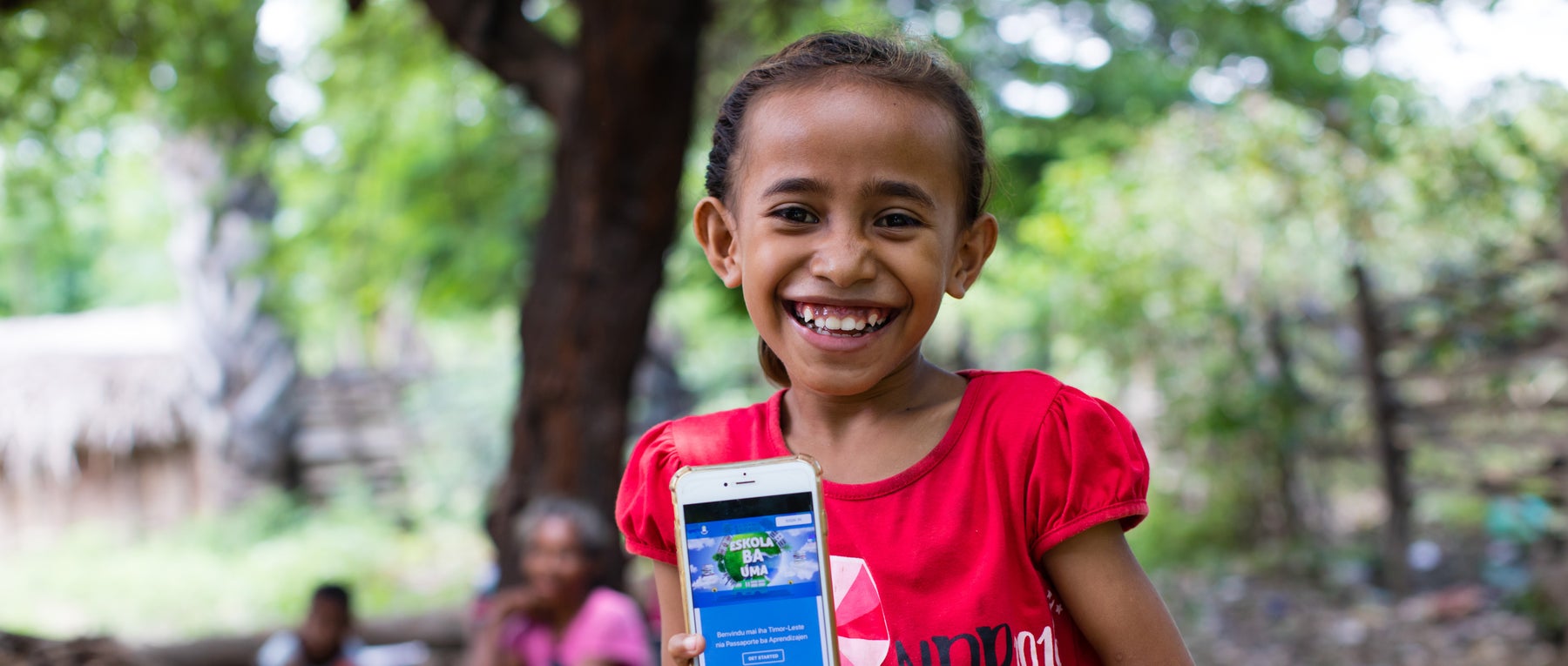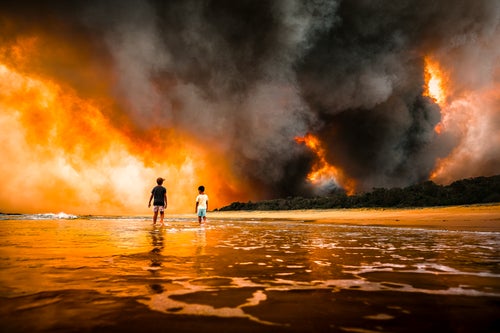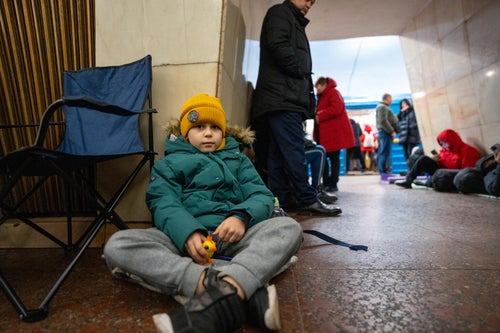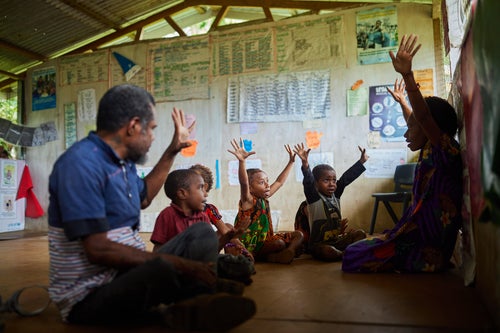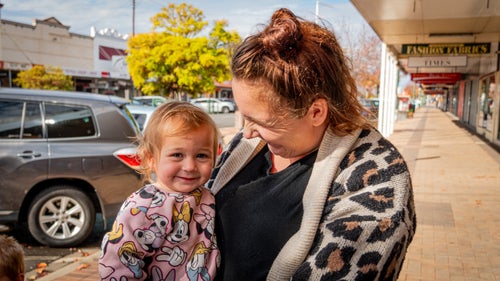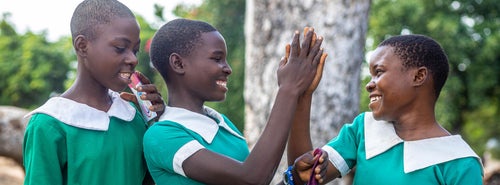When schools closed in Australia’s near neighbour Timor-Leste as a precaution against the coronavirus pandemic, the Timorese Ministry of Education called on UNICEF to help find a way to keep students learning.
For a small country with a population of 1.2 million, setting up distance learning to support all children, especially those in remote areas, was not an easy task.
While almost all families in Timor-Leste have a mobile phone, less than half have a TV, and only a quarter of people have access to radio. Likewise, internet access is predominately only available for those in urban cities, like the capital Dili or second largest city Baucau.
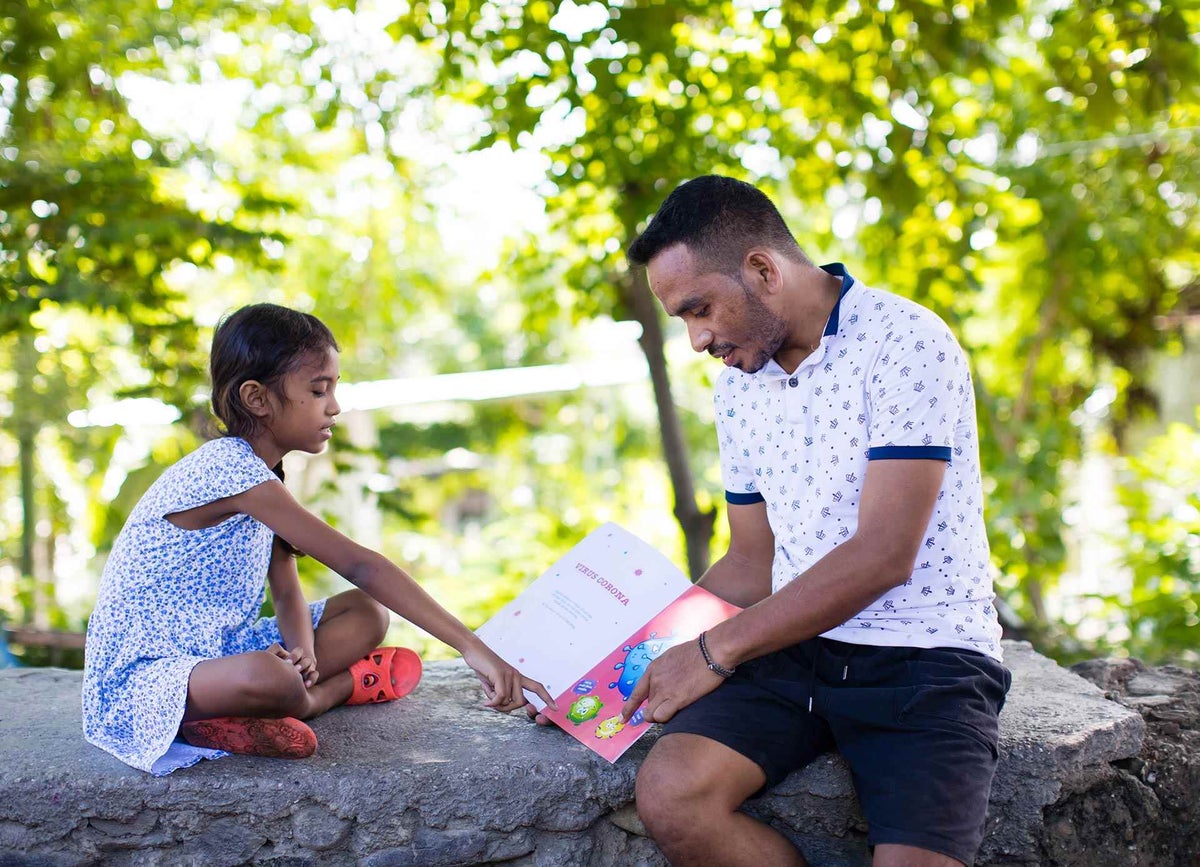
At home, many families in remote areas may also lack basic learning supplies, as well as a reliable supply of electricity for light or charging electronic devices, if they have them.
“A lot of families in countries like Timor-Leste, the Solomon Islands or Papua New Guinea do not have any books in their houses, let alone pens and paper and resources that students can use to support their learning,” explains UNICEF Australia International Programs Manager, Alice Hall.
So how do you help Timor-Leste’s 400,000 students keep learning, when many can’t even regularly access the internet?
Within two weeks of school closures, UNICEF and the Ministry of Education launched the distance learning program Eskola Ba Uma, which translates as ‘School Goes Home’ in the national language of Tetun.
Eskola Ba Uma provides learning materials across TV, radio, online, mobile phones and print, aiming to ensure all children can access education resources, no matter their circumstances.
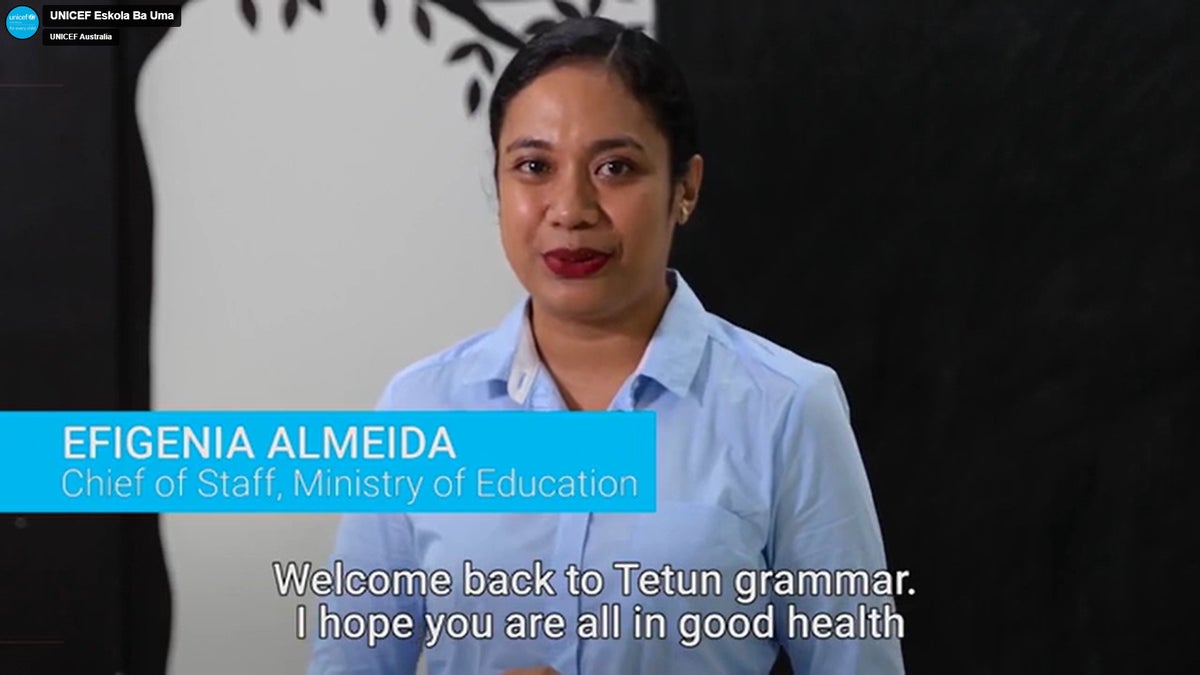
UNICEF Eskola Ba Uma
The online part of the program, the Learning Passport, was designed with Microsoft and provides children remote access to their national school curriculum with child-friendly textbooks, storybooks, songs and videos. It also includes interactive quizzes to keep children engaged and test their progress.
“It was initially designed for a refugee context, where children could carry it with them as evidence of their education progress,” explains Alice.
“The Learning Passport is great for children because it is really interactive and it tracks children’s progress, creating a record of how they are progressing through their learning, even if they’re not in classrooms.”
“When schools reopen, they will need to assess how much learning children have missed and this will be a really useful tool for that.”
UNICEF also launched an app version of the platform to allow students to download books and resources in advance while they are in internet range, so they can continue to study once at home, even if their community does not have regular access to the internet.
"It’s incredible how quickly UNICEF field teams in so many countries have mobilised and come up with really innovative solutions."
Soon the platform will offer skills training for adolescents and UNICEF has also partnered with a local telecom company with the aim to give 600,000 mobile phone users free access to the learning materials, without having to use their mobile data, which can be unaffordable. Parents and carers can also sign up for SMS text messages with advice and tips on how to support their children’s learning at home.
“It’s incredible how quickly UNICEF field teams in so many countries have mobilised and come up with really innovative solutions,” says Alice. “They have instantly changed everything that they’re doing in order to keep children engaged and keep them learning.”
“In Timor-Leste, they developed the television series within weeks. In Papua New Guinea (PNG) they reached 380,000 children within a few weeks of schools closing with radio broadcasts of lessons. And, in the Pacifc they’re getting storybooks and messages out to children, and managed to rapidly adapt these for the Pacific context - which is so important.”
"They have instantly changed everything that they’re doing in order to keep children engaged and keep them learning."
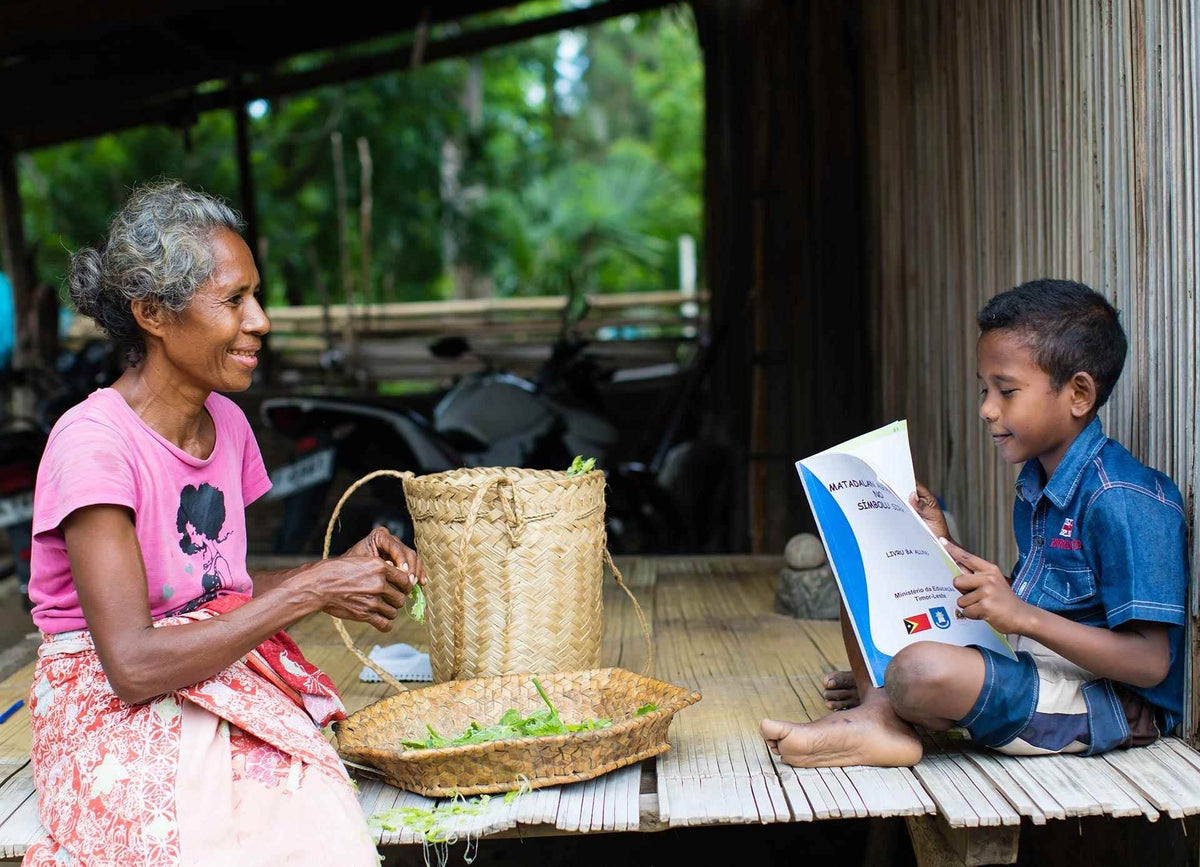
It’s critical that children continue to learn throughout the crisis. From UNICEF's experience in emergencies we know that the longer a child is out of school, the less likely they are to return.
“After the earthquake in PNG two years ago, many students did not return to school until the start of the next school year. That was 10 months later. It’s like losing a year of your life,” says Alice.
It is hoped the new ways of delivering education in Timor-Leste and other countries will outlive the COVID-19 emergency, paving the way for more accessible education systems for remote communities.
For many children in Asia Pacific countries, their primary school may be five or six kilometres away, and the journey may also involve river crossings. “It’s the reason a lot of children start school late. They are simply too small to travel those distances by themselves.”
Many must also move away from their community in order to access high school, which becomes financially unachievable for some families.
Quality of education is also an issue.
“Many schools in the Asia Pacific region have always had very limited access to learning materials,” explains Alice.
“A lot of teachers are also operating in really remote and isolated communities, with limited access to continuous training and support, so quality of education in remote areas has also been a challenge in many countries.”
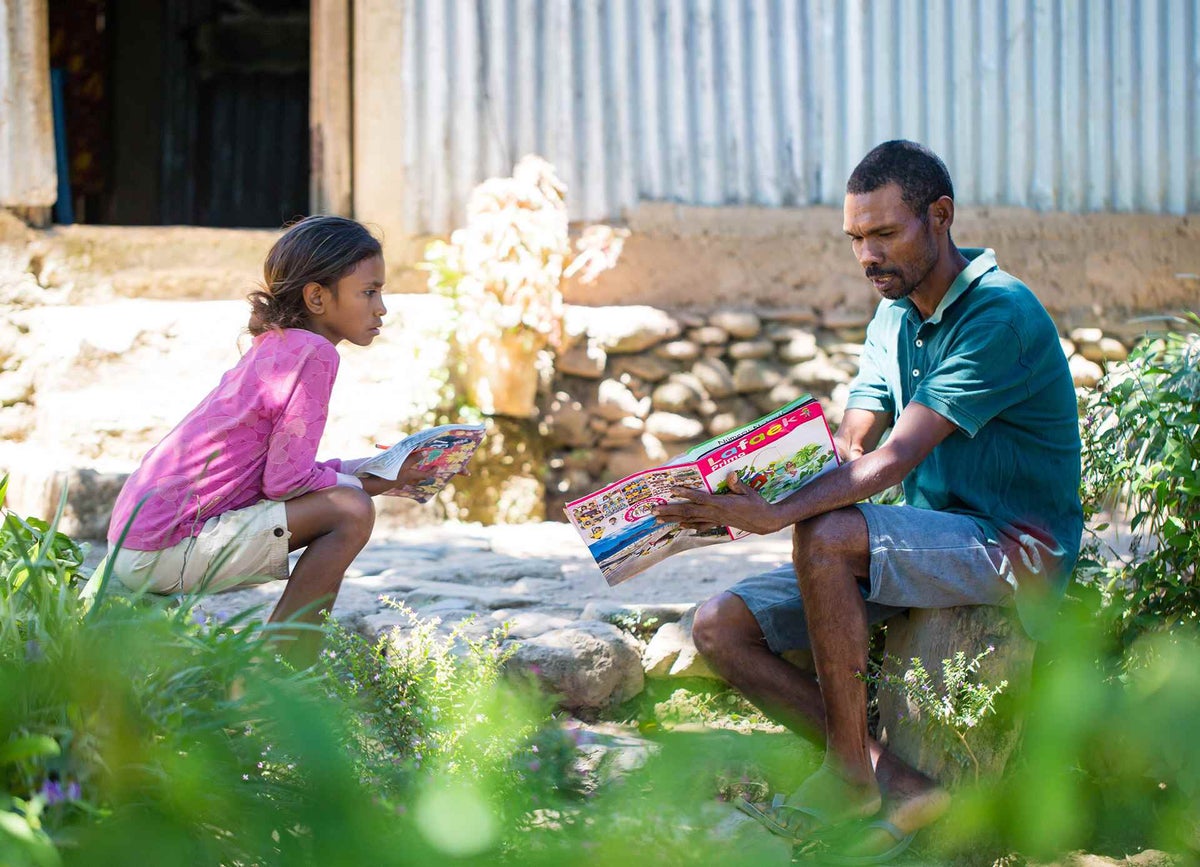
Alice says she hopes the new initiatives will go on to provide more resources for teachers in remote schools, and mean children who are unable to attend schools due to distance will have other options to start and keep learning.
“There’s been a really exciting leapfrog of learning approaches in a lot of countries.”
"These new approaches will have a huge impact on remote schools and how they can provide education in the future."
Related articles
Stay up-to-date on UNICEF's work in Australia and around the world



